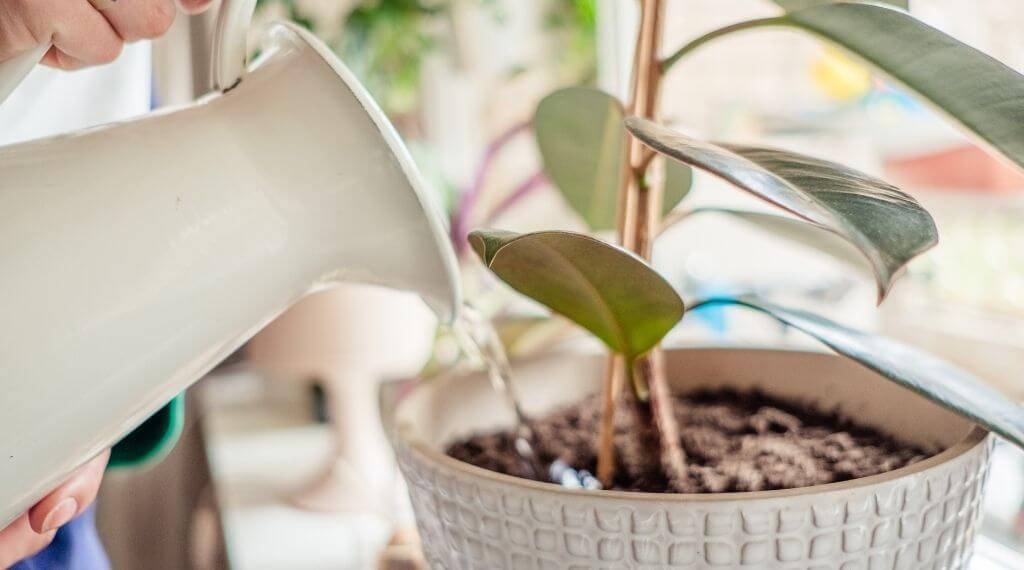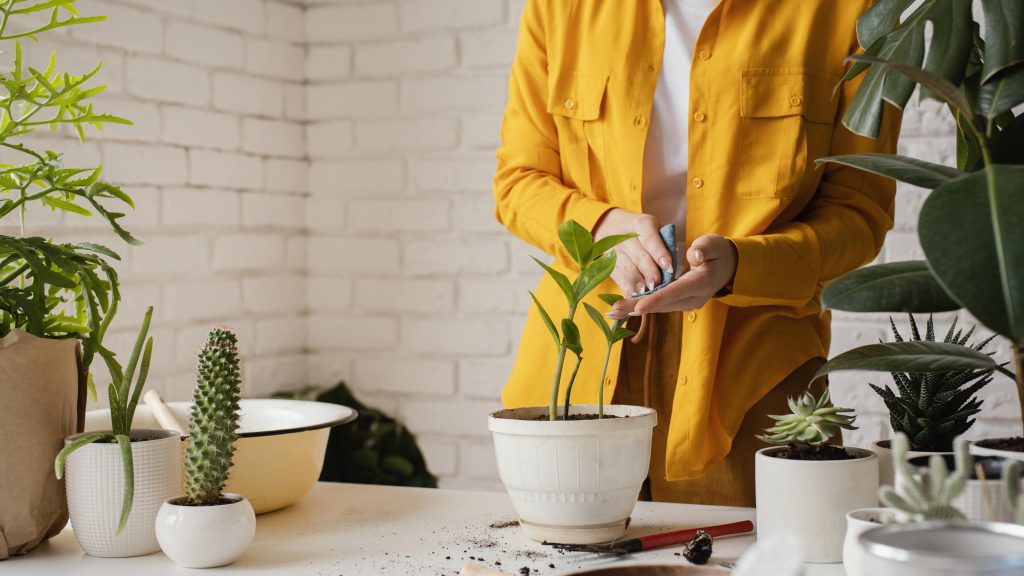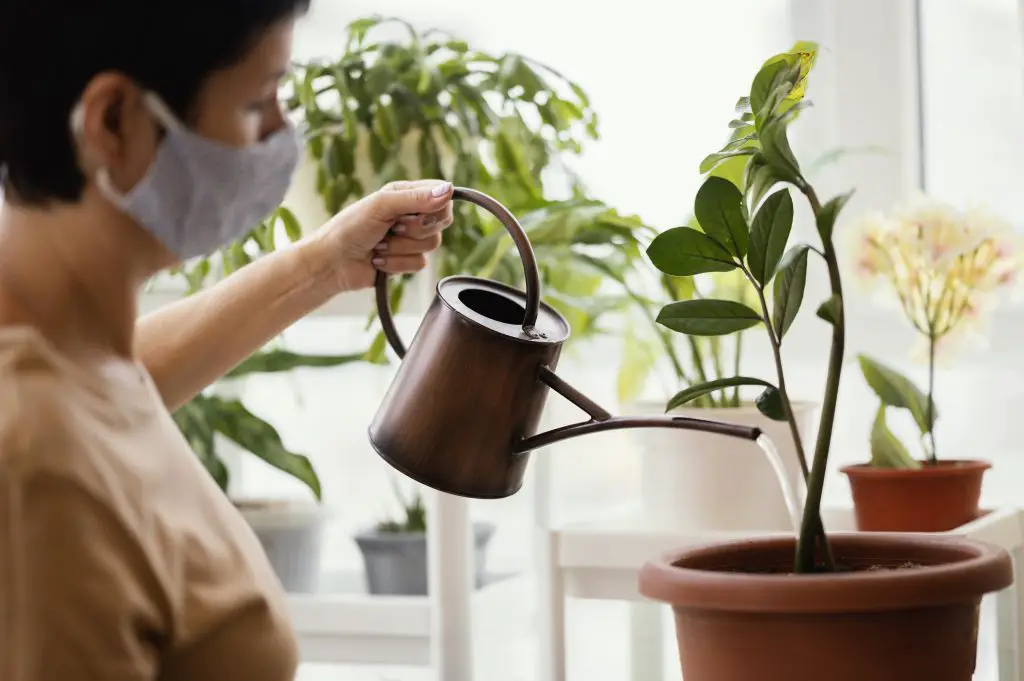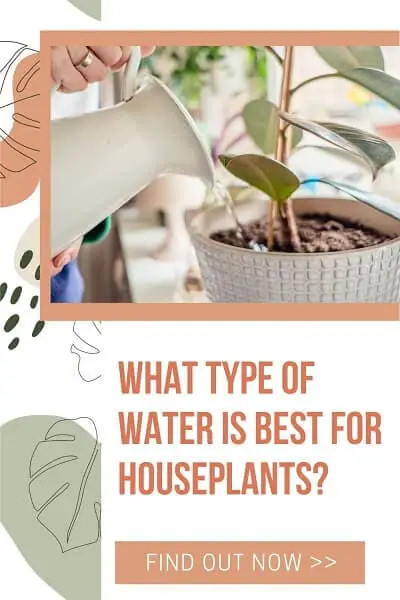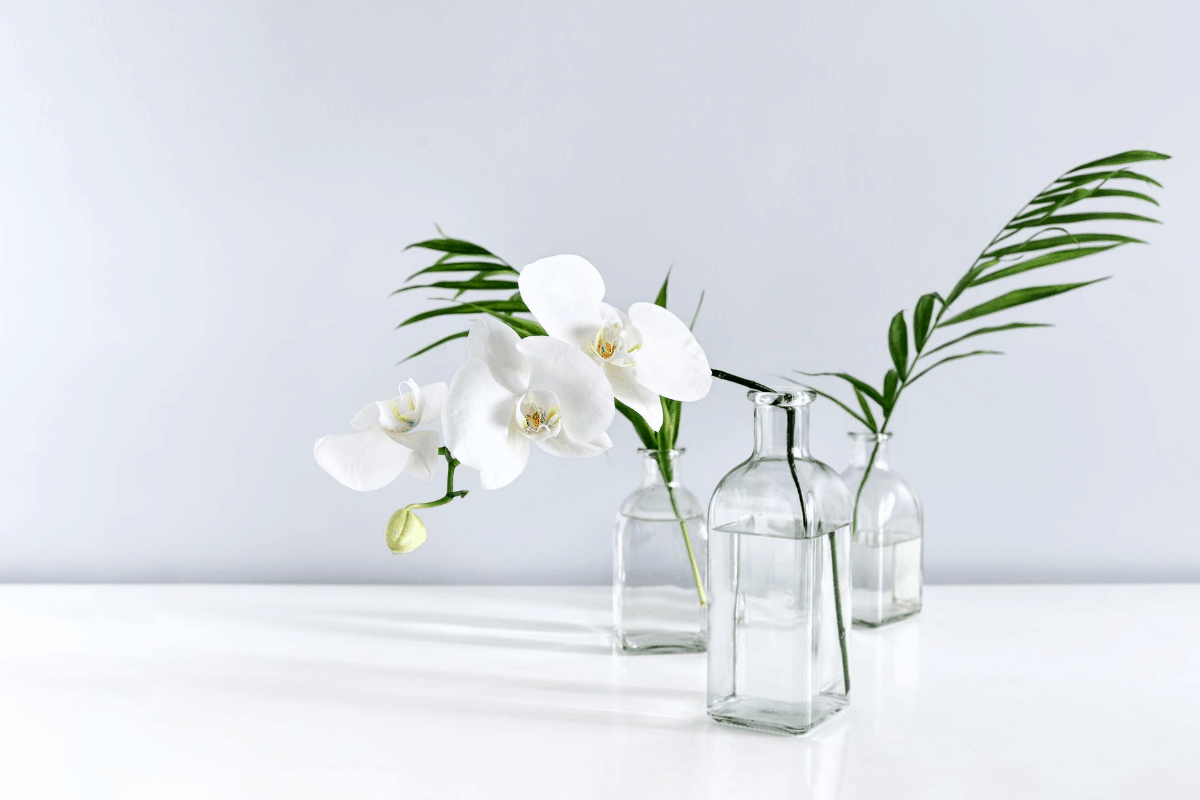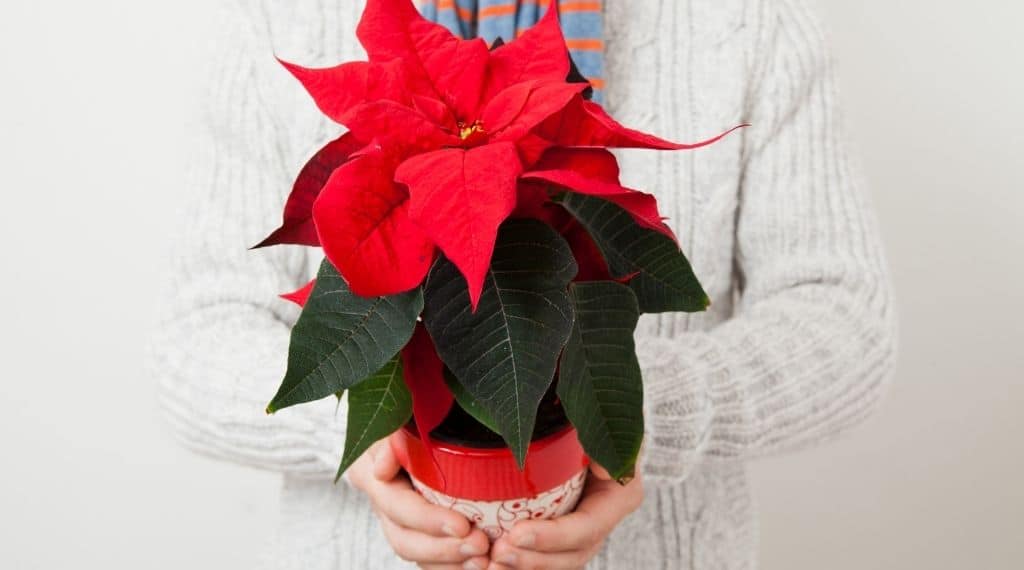Last Updated on October 9, 2021 by Plantiful Interiors
Using Distilled Water For Houseplants
It is not uncommon to use distilled water for houseplants. You’re about to discover whether using distilled water for houseplants is good idea in 2021. As well as the best type of water for your indoor plants.
As we know, overwatering is the most common cause of death in houseplants but did you know, the type of water you’re using could also be causing harm?
This post contains affiliate links. As an affiliate partner of various brands, we earn a little commission on qualifying purchases, at no extra cost to you. When you purchase through our links, you help our business to keep going. So thank you for your support! You may read our full disclaimer for more information.
The right type of water for your indoor plants is almost as important as the right amount of water when it comes to keeping houseplants alive and healthy.
Related: Are Your Indoor Plants Dying? Do This To Revive Them
Houseplants are picky about their water, just like humans. In the wide world of water, there are plenty of different types to choose from, so what type of water is best for your houseplants?
Is Distilled Water Good for Houseplants?
Distilled water should only be used if you are in a pinch. If you do use distilled water for houseplants, add some liquid fertilizer to make up for the nutrients that are removed during the distilling process.
Is It Good To Use Tap Water For Indoor Plants?
The answer to that question is yes. Tap water is good for your houseplants. However, watch out for brown tips on your plants, as this could be a sign that there is too much chlorine in your water.
Too much chlorine can cause damage thereby stunting your plant’s growth.
How long should tap water sit before watering plants?
Allowing tap water to sit out for 12-24 hours prior to watering your plants will help ensure you’re using room temperature water on your plants, which is preferred.
Related: 5 Best Self Watering Indoor Plants To Beautify Your Home
There’s a lot of debate around if there are benefits to letting tap water rest before using, allowing chlorine in the water to slowly dissipate and make tap water a more viable type of water to use.
Laidback Gardener has proven this to be a myth. As mentioned above, typically there is not enough chlorine in your tap water to do major damage to your plant.
But it is still advisable to have your water tested to know for sure what additives are in it.
Is It Safe To Use Softened Water On Houseplants?
If you have been using a water softener before watering your houseplants, it may not be the best option.
It is recommended to use a different type of water on your indoor plants as softened water can cause salt build up in the soil. Which can cause damage to your plants over time.
Additionally, you may want to test the water using a water testing kit first, to determine what kinds of nutrients and additives are in the water.
Depending on where you live, different Cities place other additives in the tap water due to their poor water quality.
With that being said, softened water is not suitable for houseplants. It has a higher sodium content than other types of water.
Over time the salt will affect your plants ability to soak up an adequate amount of water and will cause your soil to degrade. Leaving it without the proper nutrients plants need.
Is Filtered Water Good for Houseplants?
Yes, filtered water is a great option for watering houseplants. Just like the name suggests, it filters out the chlorine and other additives that may be found in tap water.
Filters can get expensive though, so if you’re only installing one for the sake of your plants, be prepared to endure the costs of changing the filter regularly to maintain its benefits.
Is Bottled Water Good for Houseplants?
Yes! Bottled water for your plants can be a great alternative to tap water. Bottled water has typically been filtered and has taken out most of the additives found in tap water.
Bottled water also does not contain high levels of sodium (such as softened water) which can cause plants to die.
Is Aquarium Water Good for Houseplants?
If you have a fish tank at home and you are going to clean it, do not just get rid of the water. The water can be reused to water your plants.
The dirty fish water contains some of the very best nutrients for plant growth. The fish and filters used in the water rid the water of chlorine.
While also adding nutrients such as phosphorus, nitrogen, and healthy bacteria. These are all things your plants need, and it is always great to reuse items!
Is Spring Water Good for Houseplants?
Yes, spring water is excellent for your houseplants. If water has been taken from a stream, it is usually bustling full of all the nutrients your plant needs.
These things can help your plant become fortified and strong. Spring water can be expensive to use though, because most of the time, spring water can only be found as bottled water.
Bottled water can be costly and the plastic bottles it comes in can be harmful to the environment.
Is Rainwater Good for Houseplants?
Yes! Rainwater is the best kind of water for houseplants. Rainwater doesn’t have any additives typically found in tap water making it the most natural source of water for your plants.
Not to mention, when plants are grown in their natural habitat, they rely solely on rainwater for survival.
Rainwater has the nutrients plants need to survive and thrive indoors and outdoors without the salts and chemicals that can buildup in your soil and damage your plants.
What Is The Best Water For Indoor Plants?
- Any water without salt, sugar, or chemicals is best for your houseplants.
- Rainwater and bottled spring water are the best types of water to give to your plants. The minerals and nutrients found in these water types will keep plants healthy.
If you haven’t been overwatering your houseplants and they are getting the required amount of sunshine but still aren’t thriving, it could very well be the type of water you’re using that is preventing them from thriving.
If you’re still in doubt about the type of water you’re using for your houseplants. Read on to see some of the answers to common questions asked about using distilled water for houseplants.
Distilled Water For Houseplants – FAQs
Does water add nutrients to my plants?
The purpose of water being added to plants is to transport nutrients throughout your house plant and give it the moisture needed for optimal plant growth.
When choosing the appropriate water to use, you want to make sure it is free of chlorine and doesn’t contain high levels of sodium.
Rainwater, spring water, and aquarium water are most recommended for your houseplants. If you are using another type of water you may need to use fertilizer to up the nutrients required for plant growth.
Always read and follow the instructions on the fertilizer you choose as too much can have a determinant affect on your plants.
Can you overwater plants?
Yes, it is possible to give your plants too much water. Overwatering can cause less oxygen to go into the roots of the plant and the soil which can lead to root rot.
Proper aeration and drainage in your soil is crucial for plant survival, otherwise your plant will die or have slow, stunted growth.
Use your fingers to check the soil for dampness about 2 inches deeper than the surface, if it already feels wet do not add more water.
If you don’t want to get your fingers dirty every time, use a soil tester instead to make sure you are giving your plant enough water without overdoing it.
You May Also Enjoy: How To Prevent Root Root + Signs & Treatment of Root Rot
Is Your Plant Getting The Right Type Of Water?
Now you have a better grasp on what type of water to use on house plants and how harmful some types of water can be.
The best way to make sure your plants are getting a proper amount of plant-friendly water is to check the moisture content in your soil regularly with a moisture meter and monitor plant growth.
If you notice that the plant’s growth is stunted or the leaves are turning yellow, it’s a good sign that you need to examine the type of water you’re using and the frequency of watering and switch up your routine.
Wrapping Up: Distilled Water For Houseplants
While you can use distilled water for houseplants, we have some reservations about why it may not be the best option. We’ve concluded that the best water for houseplants is any water that doesn’t contain salt, sugar or chemicals.
With rainwater and bottled spring water being the best options as they contain the minerals and nutrients plants need to stay healthy.

